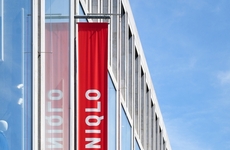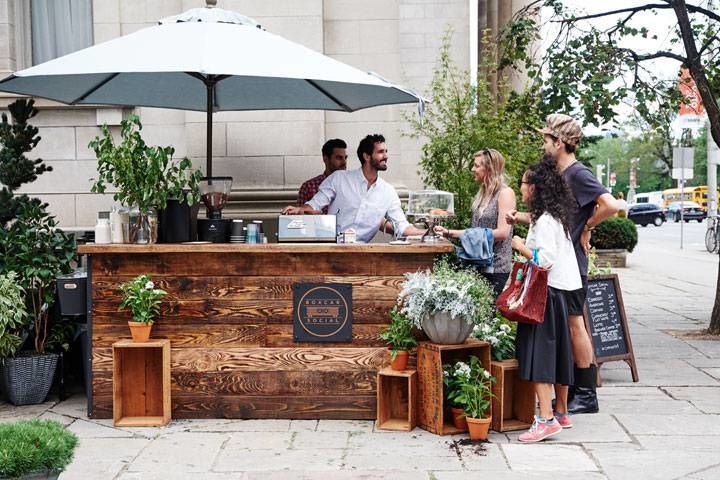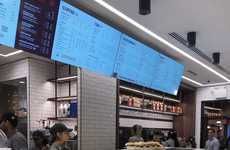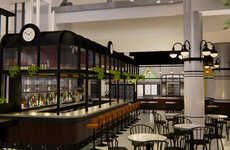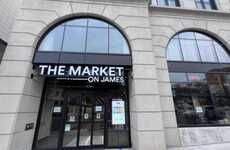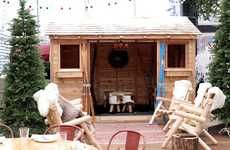
The Club Monaco Farmers Market Previously Popped Up in Toronto
Rebecca Byers — March 22, 2016 — Marketing
References: architecturaldigest & styledemocracy
The Club Monaco Farmers Market was held in summer 2015 at the brand's opulent Toronto flagship. Located inside the historic Lillian Massey Building across from the Royal Ontario Museum, the Club Monaco Toronto flagship marks the beginning of the upscale shopping strip along Bloor that signals that start of the posh Yorkville neighborhood.
The Club Monaco Farmers Market boasted an impressive selection of local offerings displayed in rustic stalls including bouquets from Sweet Woodruff, organic salads from Parts & Labour, pastries from Little Portugal's Bake Shoppe, coffee from Boxcar Social and ice cream from Philips Ice Pops. In addition to the stalls, the farmers market included seating for shoppers to enjoy a break.
The charming Club Monaco Farmers Market is an example of how traditional retail brands can leverage experiences popular with consumers.
The Club Monaco Farmers Market boasted an impressive selection of local offerings displayed in rustic stalls including bouquets from Sweet Woodruff, organic salads from Parts & Labour, pastries from Little Portugal's Bake Shoppe, coffee from Boxcar Social and ice cream from Philips Ice Pops. In addition to the stalls, the farmers market included seating for shoppers to enjoy a break.
The charming Club Monaco Farmers Market is an example of how traditional retail brands can leverage experiences popular with consumers.
Trend Themes
1. Brand-sponsored Farmers Markets - Traditional retail brands can continue to leverage brand experiences like hosting farmers markets to be in touch with the loyal consumer base.
2. Uptick in Local Produce - With the rise of traditional retail brands hosting farmers markets, there is a greater focus on the producers of food, thereby underlining the importance of locally-produced food.
3. Experiential Retailing - Traditional retail brands can continue to utilize the concept of incorporating farmers markets as part of their retail experience in order to draw in more shoppers, resulting in greater brand loyalty.
Industry Implications
1. Retail - Retailers can begin leveraging consumers' interest in locally cultivated produce by incorporating farmers markets into their brand experience, opening up new revenue streams in the process.
2. Food and Beverage - Through participating in farmers markets, food and beverage providers have greater access to, and increased demand from, both individual and commercial consumers who prioritize locally cultivated goods.
3. Hospitality - The hospitality industry can host farmer's markets on their premises, producing multiple benefits including but not limited to local product offerings, increased brand loyalty and increased customer foot traffic.
6.8
Score
Popularity
Activity
Freshness




